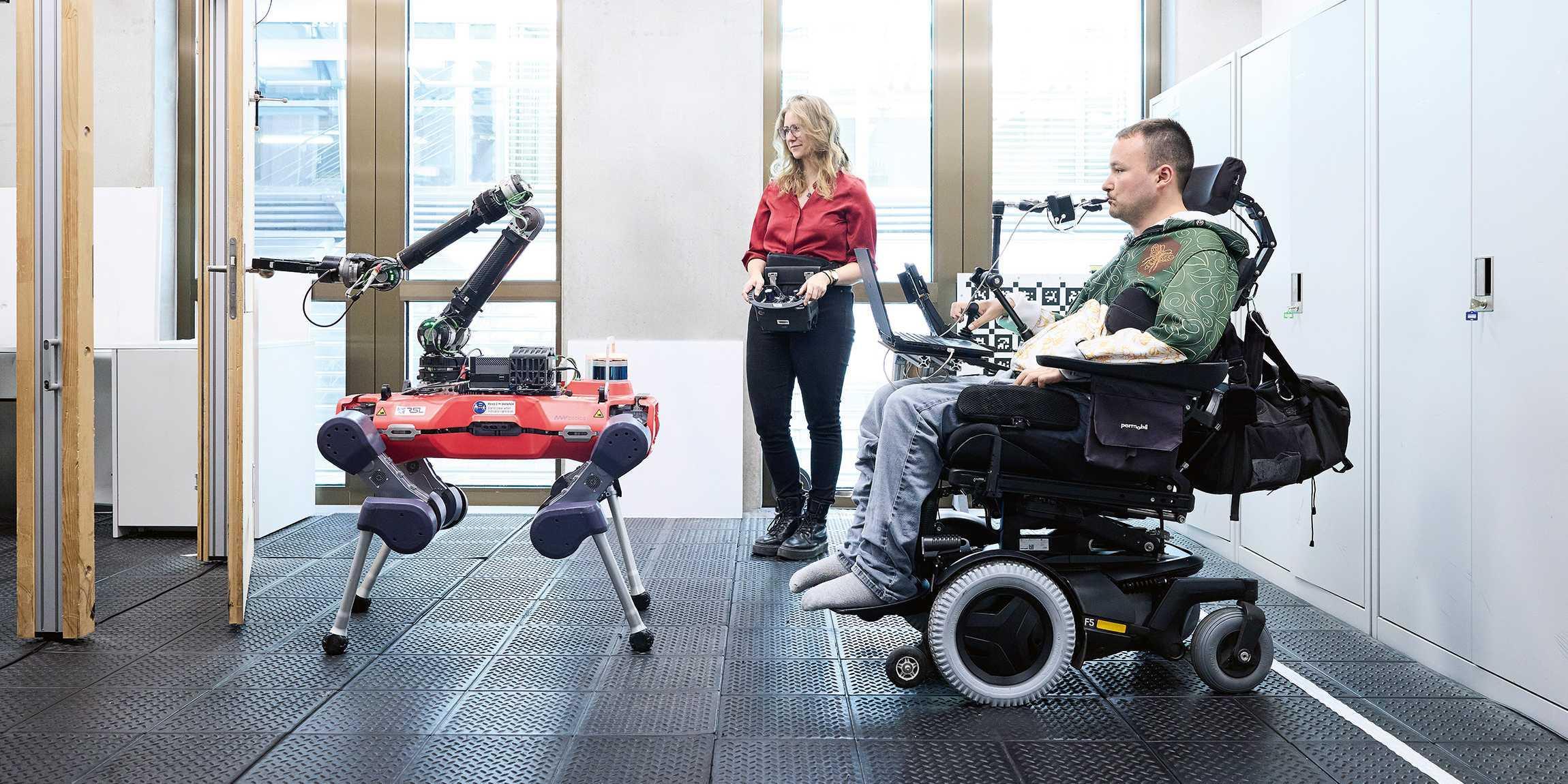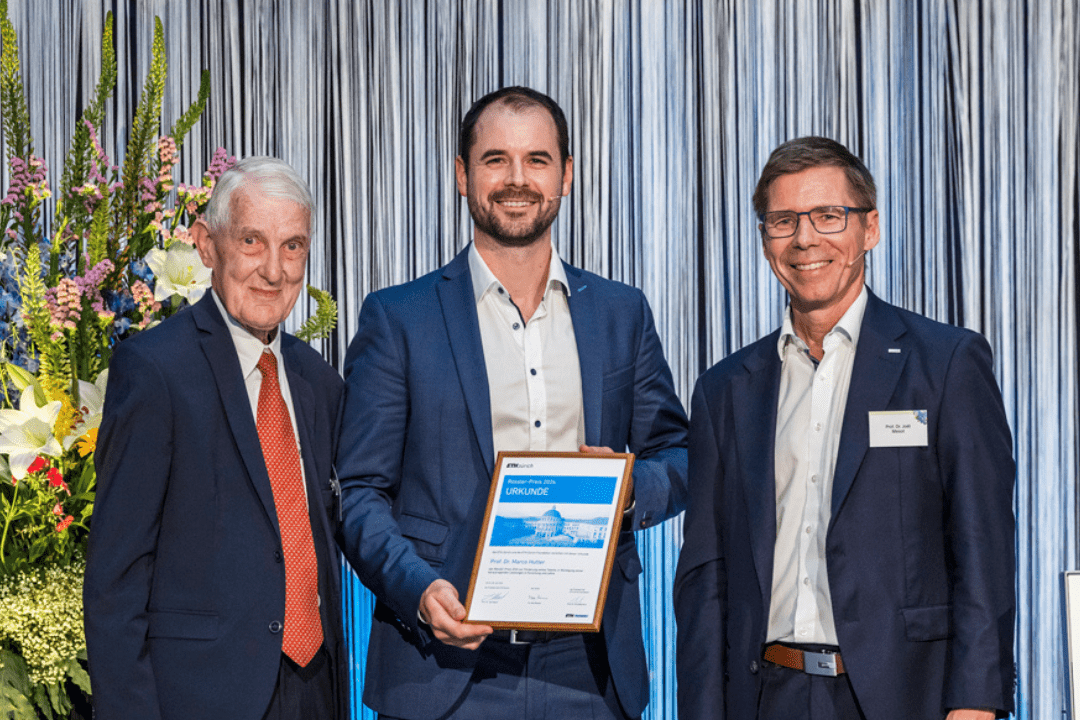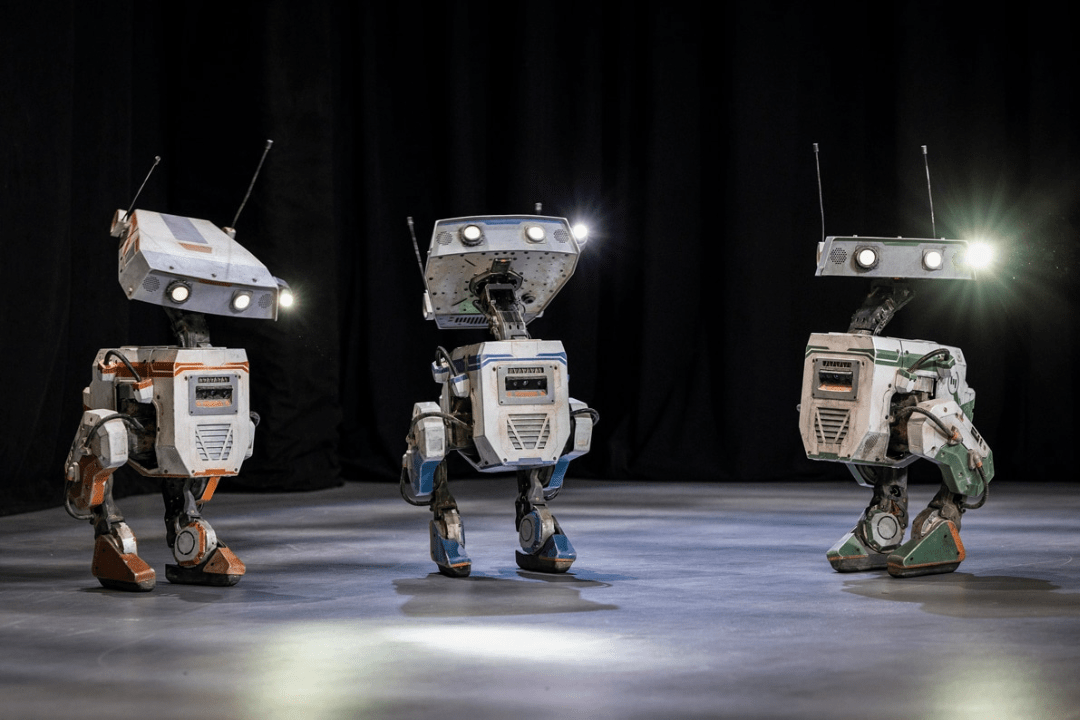
ALMA: Autonomous quadrupedal robot
Developed by the Robotics Systems Lab at ETH Zurich, ALMA is a four-legged robot equipped with sensors and a robotic arm. Unlike traditional wheelchair-mounted devices, ALMA moves autonomously on its own legs. Paraplegic pilot Sammy Kunz controls the robot using a quadstick – a mouth-operated joystick – allowing him to perform tasks like opening doors and picking up objects. This innovative approach offers greater mobility and has the potential to significantly enhance daily life for people with disabilities.
Marco Hutter wins Rössler Prize
Marco Hutter wins Rössler Prize
Marco Hutter, the professor behind ETH Zurich's Robotics Systems Lab, recently received the prestigious Rössler Prize for his groundbreaking work in robotics. Recognized as a leading pioneer, his research on AI-controlled walking robots has propelled ETH Zurich to the forefront of the field. Hutter is also one of our new Greater Zurich Ambassadors, enhancing the region's global reputation in robotics excellence.
Sight Guide: Visual navigation aid
The Sight Guide team, consisting of members from ETH Zurich, the University of Zurich, and ZHAW, has created a system to assist blind pilot Lukas Hendry in navigating complex environments. Utilizing up to three different chest-mounted cameras and a lightweight computer, the system processes visual data to provide real-time audio instructions. Additionally, a special vibrating belt offers directional cues, enabling tasks such as pressing the correct doorbell or finding a free seat. This technology represents a significant advancement in assistive navigation.
NeuroLegs: Sensory feedback for prosthetics
Students from the Neuroengineering Lab at ETH Zurich have developed a prosthetic enhancement called NeuroLegs, which provides sensory feedback to the user. Pilot Stefan Poth wears a prosthetic leg fitted with an insole containing sensors that detect foot-ground interactions. This data is processed and translated into electrical stimulation applied to his leg stump, recreating the sensation of foot contact with the ground. By restoring this sensory feedback, NeuroLegs addresses a common limitation of prosthetic legs, making walking more intuitive and reducing the risk of falls.
Robotics & Intelligent systems ecosystem
Robotics & Intelligent systems ecosystem
The Greater Zurich Area continues to be a global leader in robotics, drone technology, artificial intelligence, and computer vision. This has attracted leading technology firms and talent and encouraged entrepreneurship in the region, leading to unmatched opportunities for intelligent & autonomous systems companies.
These innovative projects highlight the thriving ecosystem in the Greater Zurich Area dedicated to improving quality of life through robotics and intelligent systems. By pushing the boundaries of assistive technology, these teams are making everyday tasks more accessible and demonstrating the region's leadership in technological advancement.
This article is based on a longer version published in the ETH Globe magazine.

